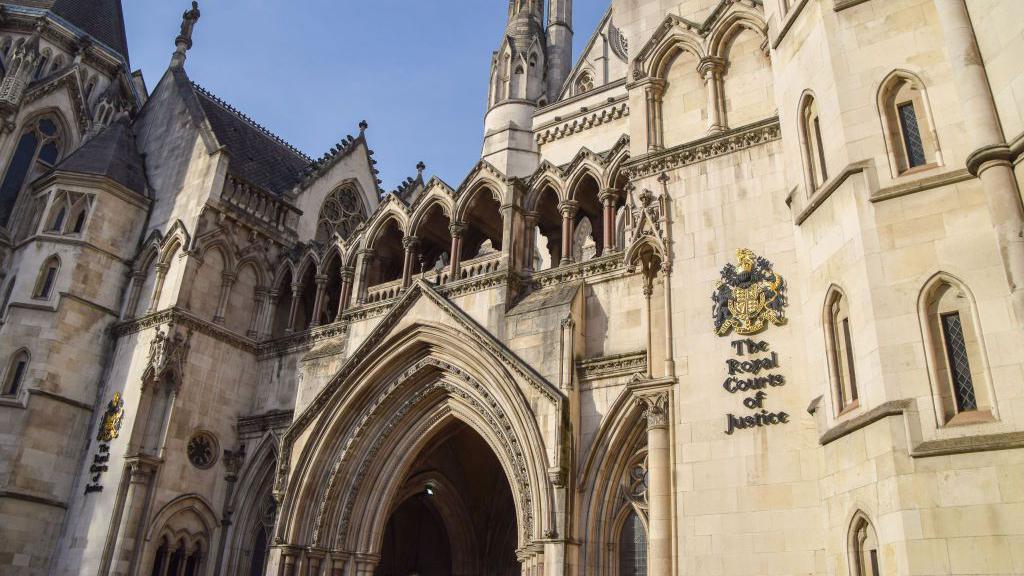Puberty blocker ban extended to Northern Ireland

- Published
A temporary ban on the sale or supply of puberty blockers has been extended to cover Northern Ireland.
Puberty blockers work by suppressing the release of hormones and can be prescribed to children questioning their gender.
In May, the Conservative government tightened rules on the drugs, introducing an emergency ban on them being prescribed by private and European prescribers.
This ban, which has been renewed, will come into effect in Northern Ireland from 27 August.
BBC News NI understands the matter was dealt with by way of urgent procedure, with the order signed off by the first and deputy first ministers without wider executive approval.
'Hard deadline to meet'
Health Minister Mike Nesbitt told the BBC's Talkback programme that he had a "hard deadline" to meet which had "implications" for the entire UK.
Mr Nesbitt agreed the matter of puberty blockers "would be a valid point" to put on the agenda for the next meeting of the Northern Ireland Executive.
The minister added that he had shared a paper outlining the rationale for the decision, but he would not be drawn on whether any executive colleagues responded to this.
First Minister Michelle O'Neill said: "The health minister has taken forward a position based on medical advice, but clearly we have to have the appropriate support in place for anybody out there who requires gender affirming support."
In Northern Ireland, puberty blockers were only available on NHS prescription for under-18s, for those young people who were accepted onto the Child and Adolescent Mental Health Services Gender Identity Service endocrine pathway prior to March 2020.
It is understood children already on this medical pathway will continue to receive treatment.
Hormone suppressors also remain available for patients receiving the drugs for other uses, such as early-onset puberty.
The move to ban puberty blockers came after a report into children's gender services - the Cass Review - said there were "gaps in evidence" around the drugs.
The review was led by leading paediatrician Dr Hilary Cass and prompted the last government to ban the use of puberty blockers for under-18s questioning their gender – a move which was then supported by Labour when they won the election.
Westminster has now extended that temporary legislation, external, which previously did not include Northern Ireland.
Transgender youth support charity Mermaids said it is "very disappointed" by the decision to extend the ban to Northern Ireland as it "sets a worrying precedent".
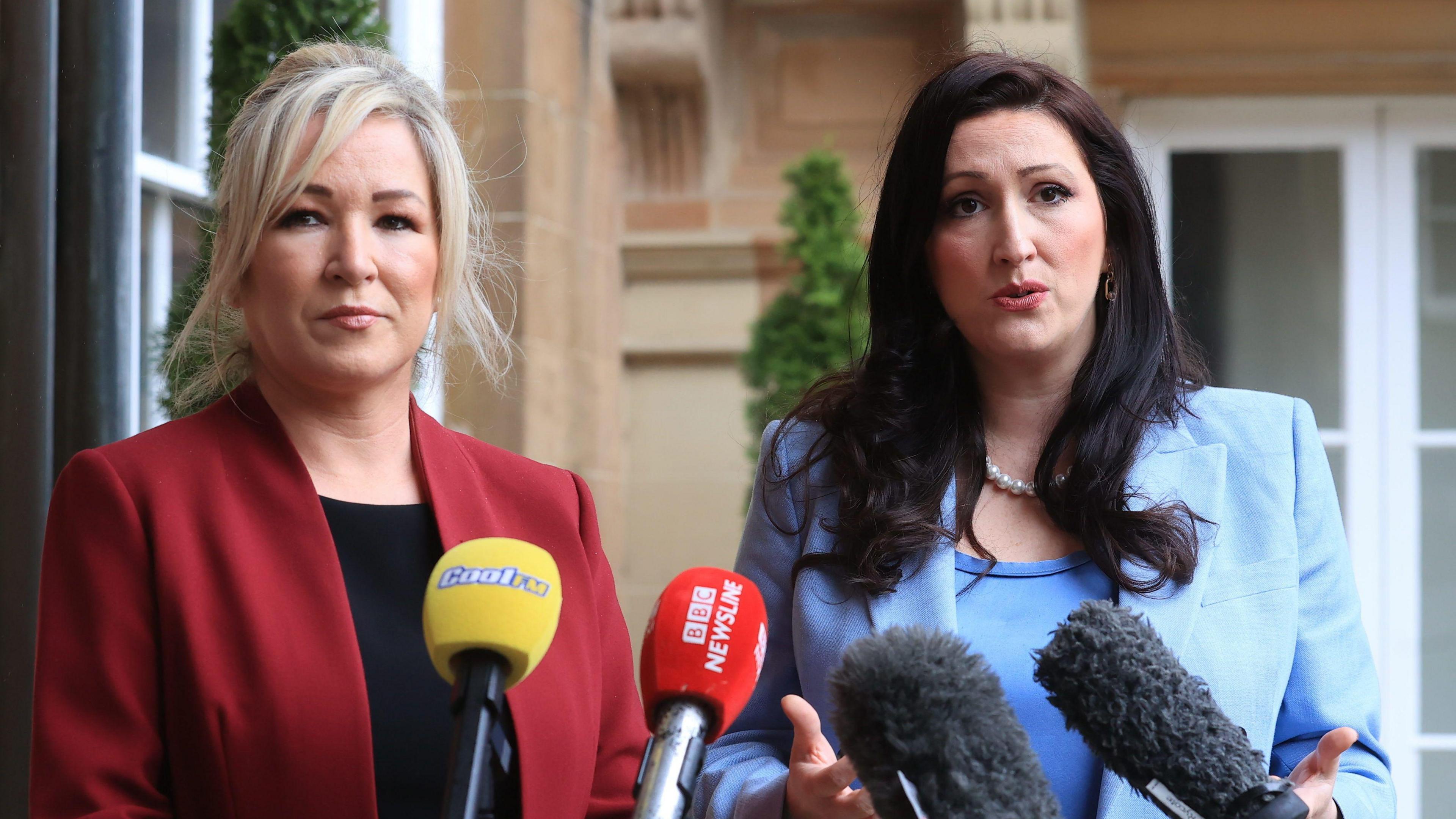
The order was approved by the first and deputy first ministers, Michelle O'Neill and Emma Little-Pengelly
Alexa Moore, from the Rainbow Project charity which supports LGBT people living in Northern Ireland, told the BBC's Talkback programme that clinical decisions should be made in consultation with patients, not by politicians.
"I would really question why an urgent procedure was needed during a summer recess when the whole executive can't get around the table and fully and fruitfully discuss this," she said.
Ms Moore said gender identity services in Northern Ireland "are in complete disarray" and that is where urgency should be directed.
"This is clamping down on an area of care that virtually doesn’t exist and what avenues do exist to access that are being shut off," she added.

The Rainbow Project's Alexa Moore has questioned the use of an urgent decision under the ministerial code
'Sensible decision'
DUP health spokesperson Diane Dodds said the decision to extend the ban was "a sensible decision based on expert medical opinion".
"Our position on the provision of puberty blockers has been clear and given the lack of long-term evidence of their safety it is right that the most cautious approach is taken," she said.
She added that ensuring NI was included in the ban was "the most sensible outcome" and she is "glad that we have finally arrived at that destination".
Aontú deputy leader Gemma Brolly also welcomed the order, claiming prescribing puberty blockers to gender-question children was “wrong and dangerous”.
“Irreversible damage can be carried out on children, many of whom may seek to de-transition in the future,” she said.
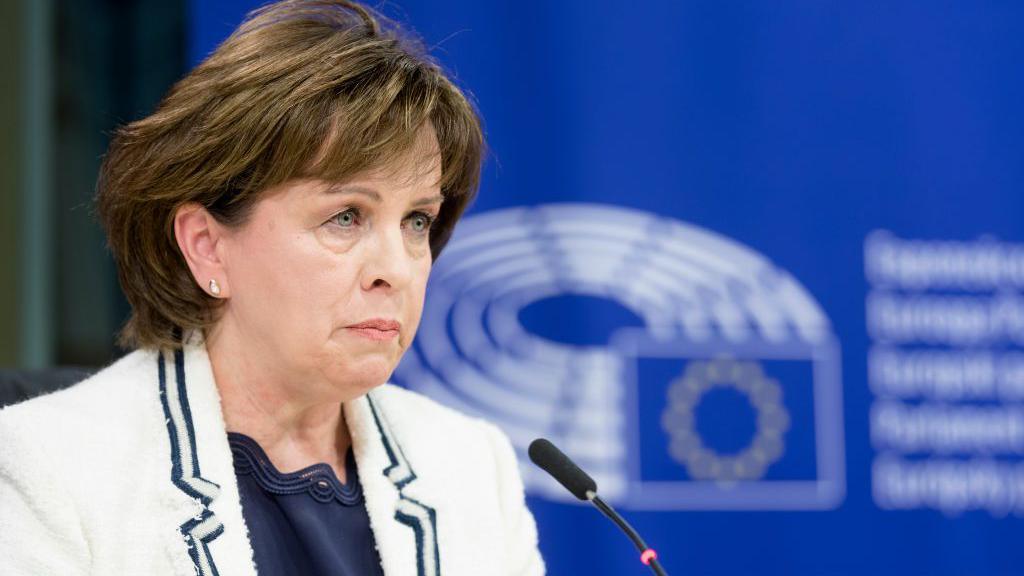
The ban has been welcomed by the Democratic Unionist Party's Diane Dodds
'Opportunistic politicking'
An Alliance party spokesperson said: "The well-being of young people and their families must be at the heart of our decision-making when we discuss this issue."
They pointed out that the Cass review "did not review clinical services or pathways in Northern Ireland" and might not be fully applicable, and said they awaited the outcome of a Department of Health- commissioned review.
In a statement, a Sinn Féin spokesperson said the party "accepts the current medical advice from the chief medical officer" and that they will monitor the British Medical Association's review of the Cass Report.
"To be clear, our position is that clinical and health care is best determined by doctors and clinicians - not politicians - and needs to be informed by the clinical and scientific evidence," the spokesperson added.
People Before Profit MLA Gerry Carroll called on the executive to roll back on the ban, adding such decisions "should not be based on opportunistic politicking".
“The health minister and his colleagues are pandering to the worst right wing sentiments to distract from their own failings," Mr Carroll added. “The Stormont executive should focus on fixing the health service instead of trying to scapegoat the trans community."
'Insensitive' announcement
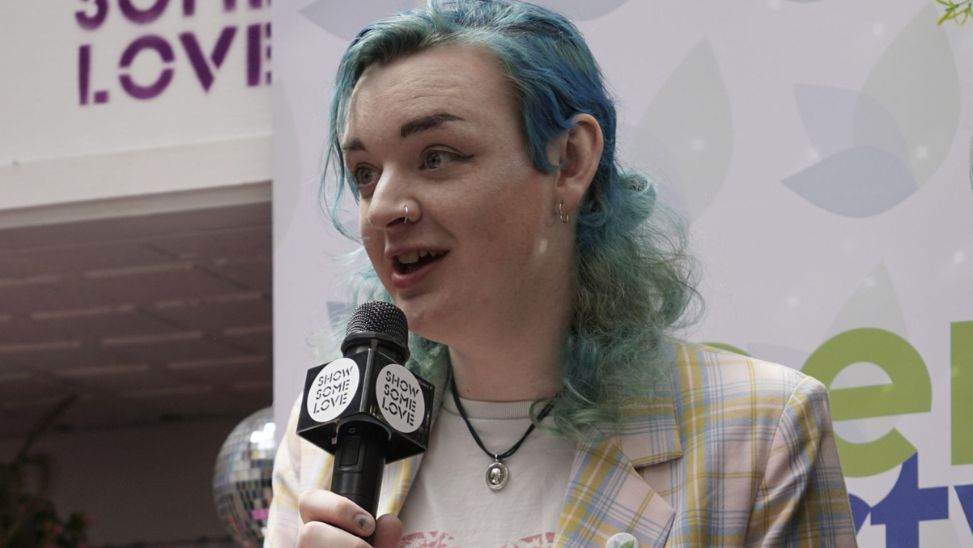
Mike Nesbitt announcing the ban on social media was "particularly insensitive", according to Green Party NI's Ash Jones
Green Party NI representative Ash Jones described the ban as "highly disappointing".
"Announcing it via X/Twitter is particularly insensitive for such an emotive topic," she said.
Ms Jones added that the ban is "another let down" by executive parties.
"They have promised an LGBTQ+ strategy since 2007," she said. "Last night, they have made things worse for trans people and their families.
"This is a betrayal by the executive, particularly by parties that march in Pride parades."
'Deeply concerned'
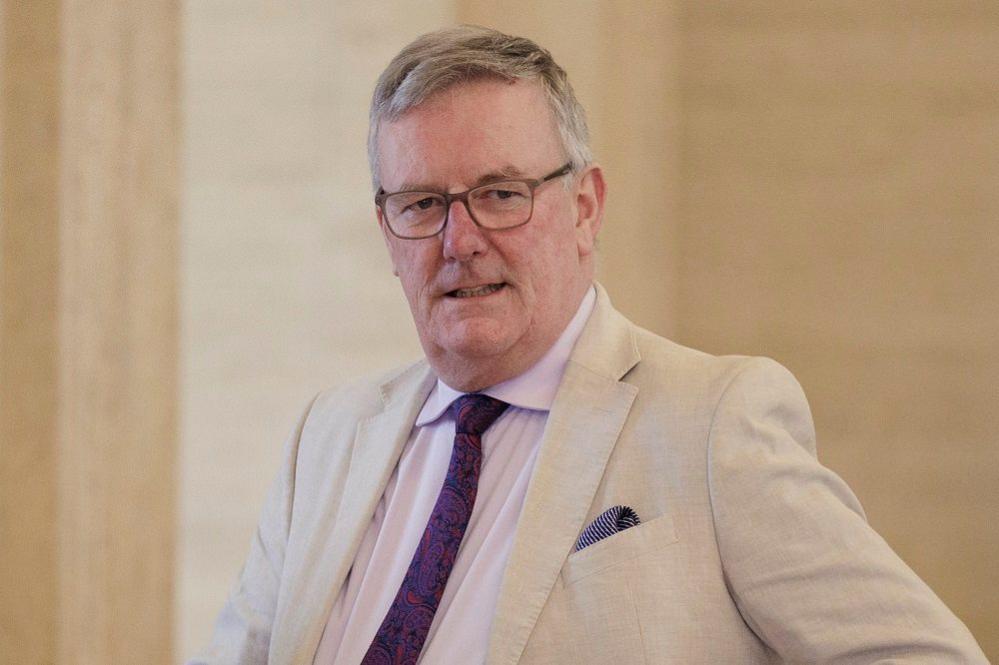
Mr Nesbitt said the ban would close a potential legal loophole "which could have been very dangerous"
In a statement, the Department of Health said that, in light of the Cass Review, "and to close potential loopholes that could be exploited by not having a UK-wide legislative approach", Mr Nesbitt concluded that Northern Ireland should align with Great Britain.
The former boss of Mermaids, trans activist and director of Anne, Susie Green, had said she planned to exploit a legal loophole in Northern Ireland, external to bring the drugs into Britain.
"Labour’s choice to remove NI as an option for families accessing puberty blockers simply increases the costs and inconvenience for patients who will now travel further afield, increasing the inequity," Ms Green told BBC News NI.
"This updated legislation was signed off without the full support of the Northern Ireland Executive, which raises additional concerns about its motivation and legitimacy," she added.
"We are deeply concerned about the motivations and callous lack of regard for how this will impact young people and their families... Politics has no place in medicine, and it is deeply shameful that this is happening."
BBC News NI has asked the Executive Office for a comment.
- Published1 August 2024

- Published16 May 2024

- Published9 June 2023

- Published29 July 2024
